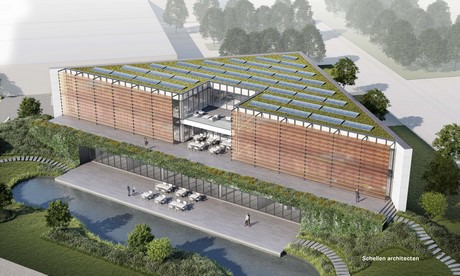The Belgian family group De Ceuster continues to grow. In February, 2019, Group De Ceuster will therefore open a brand new and sustainable head office in Grobbendonk. The European market leader in organic fertilizers is a true family business, and at the same time a global player. Continuous innovation with a focus on ecology is the key to their success.

With DCM (De Ceuster Meststoffen), Group De Ceuster produces organic fertilizers based on 30 high-quality raw materials from residual flows from the food industry. They are fully committed to the circular economy. Years of effort turned DCM into a big European player in organic fertilizers, with buyers around the world. Today the second generation is at the helm of the family business. Under the impetus of Tom De Ceuster, Group De Ceuster has been focusing even more on ecological and organic products since 2010.
Group De Ceuster opens almost energy-neutral head office
The pursuit of the most sustainable approach is also reflected in the new headquarters of Group De Ceuster in Grobbendonk, which is almost energy-neutral. Sun blinds, solar panels, smart design, extensive insulation and even concrete core activation: the most contemporary techniques of sustainable construction are integrated into the new building. The R&D department De Ceuster Biosciences and research institute Scientia Terrae will later also move from Sint-Katelijne-Waver to the site in Grobbendonk. In 2020, the construction of a new building for research and development and the construction of test gardens and greenhouses will start. For example, both production and research and development will come together at the same site.
Group De Ceuster conducts research and development for its own product range, but also at the request of external partners. With Scientia Terrae, the group has its own non-profit research institute that also conducts research for third parties. For example, the institute developed a DNA multiscan to quickly and accurately detect plant diseases and a vaccine against a specific tomato disease. Both are successfully used internationally by laboratories and professional growers.
Their innovations aren't limited to just the product itself. DCM received a golden award recently from Smurfit Kappa for most innovative and sustainable packaging. The new dispenser containers ensure less waste because they no longer have a plastic inner bag. Thanks to this procedure, more than 3 tons of plastic is saved on an annual basis.
For more information: DCM
DCM
www.dcm-info.com
